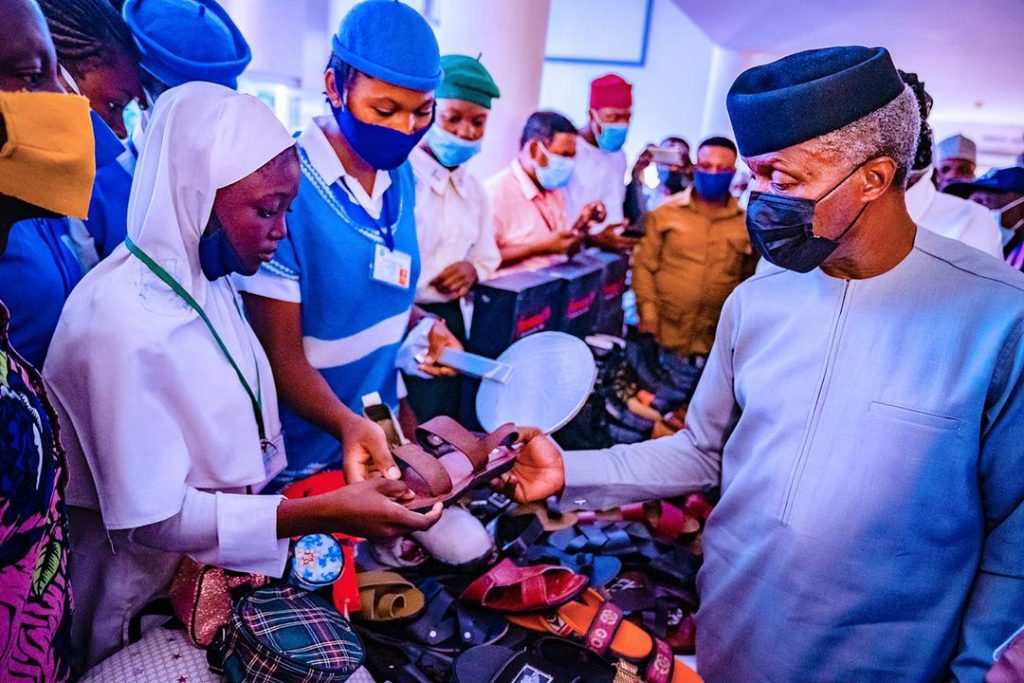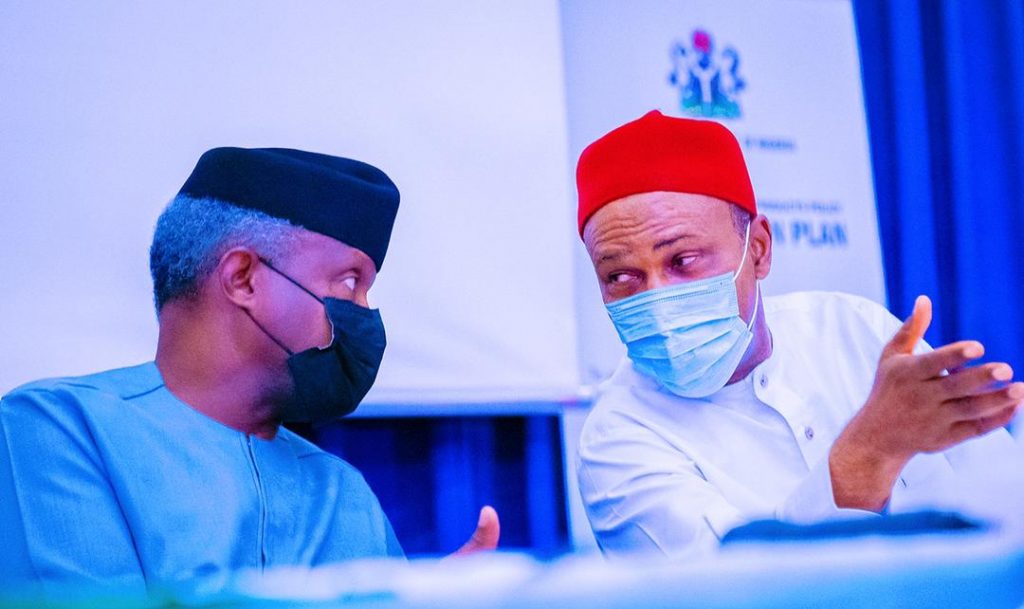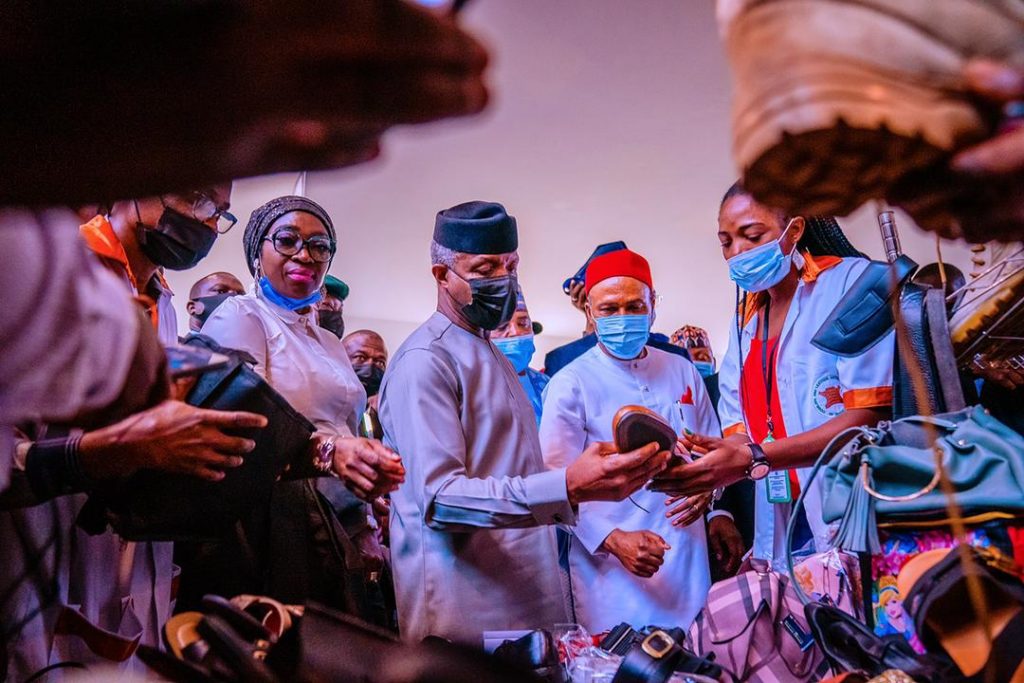Vice President Yemi Osinbajo on Tuesday said that leather industry could become a game-changer for Nigeria’s economy by improving the country’s foreign exchange earnings, boosting growth, and providing employment for young Nigerians with the right planning and strategy.
Prof Osinbajo said Nigeria being one of the highest producers of leather and finished leather products in Africa with a projected revenue of US$1 billion by 2025, the goals optimizing the value chain could become reality soon.Osinbajo launches National Leather & Leather Products Policy Implementation Plan
Speaking during the formal launch and sensitization workshop on the National Leather and Leather Products Policy Implementation Plan in Abuja,Prof. Osinbajo, referenced a study carried out by the Nigerian Economic Summit Group (NESG) which projected that the Nigerian leather industry has the potential of not only increasing its earnings by 70 percent but also generating over US$1 billion by 2025.
The Vice President said: “There is no question that properly organized, the leather and leather products industry could become one of the major items in Nigeria’s export basket.
‘‘The leather value chain is extensive. It includes animal husbandry, tanneries, finished leather products and leather products marketing. The leather and leather products industry currently employs over 750,000 workers with about 500,000 workers in the finished leather goods sector. About 11 leather exporting companies have been active at the upstream end of the leather value chain.
“Also, the export of leather has grown steadily, reaching a peak of $117 million in 2018. Exports fell in 2020 largely due to the pandemic, but to date, are in the order of $272m.”
Speaking further, Prof. Osinbajo explained that the country was yet to maximize its potential in the sector despite exporting millions of semi-finished and finished leather products to destinations including Italy, Spain, India, South Asia and China. With the formal launch of the National Leather and Leather Products Policy Implementation Plan, the VP noted that Government now has ‘‘a real opportunity to address specific challenges and shortcomings of the leather sector with pragmatic strategies to permanently resolve these issues for optimal productivity.”
He added: “There is now a clear line of sight to our emergence as a major hub for the manufacture of leather goods with the refocusing of the leather sector to value addition from its previous focus on exporting semi-processed leather.”
Describing the Plan as all encompassing, Prof. Osinbajo noted that relevant Government Ministries, Departments and Agencies (MDAs), Non-Governmental Organisations (NGOs) and the organized private sector are assigned specific responsibilities for its various objectives and strategies.
He added that the Plan covers eight thematic areas, including intellectual property rights, governance, E-leather, environmental and social best practices, marketing, funding, critical infrastructure and research and development.
Commending the initiative of the Nigerian Institute of Leather Science and Technology (NILEST) regarding the plan, Prof. Osinbajo said the establishment of Nine (9) Extension Centres across the six (6) geo-political zones will help to train and develop young entrepreneurs in Nigeria as well as provide innovative research and development in the sector.
Noting that the Institute is also collaborating with the Military for research, development, design and production of military footwear, the VP added that, “the very idea of an implementation plan is refreshingly innovative. It addresses the malignant problem of great plans but poor delivery that appears to bedevil many policies of government.”
“The next steps are clear and the stage is set for establishing the leather and leather products industry in Nigeria on a sure footed and well thought out growth trajectory,” Prof. Osinbajo stated.
The Vice President commended the Minister of Science and Technology, Dr. Ogbonnaya Onu and his team for developing the Plan, as well as other relevant government agencies and international bodies such as the European Union (EU) and the German Society for International Cooperation (GIZ) who are partnering with the Federal Government in the implementation of the policy.
 The Story Your path to the story
The Story Your path to the story
















